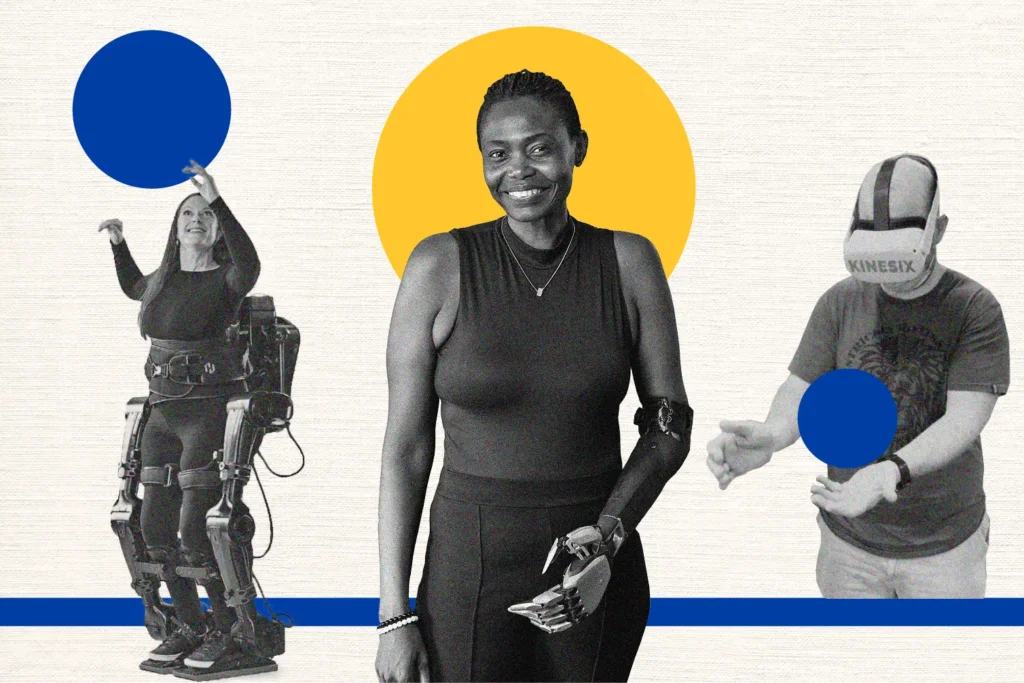Home » 10 Global Innovators Transforming Mobility and Activity for People with Disabilities
10 Global Innovators Transforming Mobility and Activity for People with Disabilities

The Mobility Unlimited Hub, launched by the Toyota Mobility Foundation in partnership with MaRS in 2024, is focused on supporting the commercialization of innovative assistive technologies. This initiative responds to the rising demand for assistive devices driven by an aging population and an increasing number of people living with disabilities—over 8 million in Canada alone. The World Health Organization projects that by 2050, 3.5 billion individuals worldwide will need assistive technology.
In its second cohort, the program has selected ten startups from a pool of more than 70 international applicants. These companies will receive two years of targeted support, including advisory services, public relations opportunities, capital connections, workshops, networking, and dedicated co-working space at the MaRS Centre.
The selected startups are pioneering solutions designed to enhance independence and daily living for individuals with mobility and vision challenges.
-
Human in Motion Robotics: This Vancouver-based startup offers the XoMotion lower-limb exoskeleton, allowing users to perform everyday activities like swinging a golf club. Developed with input from individuals with spinal cord injuries, the exoskeleton uses advanced sensor systems to mimic natural motion.
-
ImaginAble Solutions: Founded by Lianna Genovese, this Hamilton-based startup created the Guided Hands device to help people with limited hand mobility express themselves through art and writing. Its design utilizes a simple mechanism to assist fine motor movements, gaining global recognition.
-
Steadiwear: Focused on stability, this Toronto startup has developed a lightweight glove for people with hand tremors, using technology analogous to earthquake stabilization. This innovation addresses daily challenges and has garnered significant investor interest.
-
Ora Medical: With a hands-free gait trainer for children, this Montreal startup emphasizes play and exploration. The device’s lightweight design is user-friendly for caregivers and adjustable to accommodate growing kids.
-
Possibility Neurotechnologies: This Calgary startup is advancing accessibility through a brain-computer interface (BCI) that translates neural signals into device commands. The technology is being adapted for children with cerebral palsy, allowing them to communicate effectively.
-
GiveVision: Focused on enhancing the experiences of visually impaired individuals at live events, this London-based organization creates AR/VR headsets that magnify key areas, providing a richer interaction with the environment.
-
Bionic Power: Based in Vancouver, Bionic Power's smart orthosis supports natural motor control and improves walking patterns without lifting the body. Their aim is to create a customizable device that can be worn discreetly under clothing.
-
smartARM: The Toronto startup has developed an AI-powered bionic prosthetic hand capable of adapting its grip based on object recognition, enhancing interaction and movement for users with limb differences.
-
Victoria Hand Project: Originally a university research project, this non-profit is utilizing 3D printing technology to produce affordable upper limb prosthetics, significantly improving access to prosthetic care in underserved regions.
- Kinesix XR: This Montreal and Chile-based startup is exploring virtual reality-based neurorehabilitation. Their AI-powered technology creates immersive 3D environments to facilitate brain activation and neuroplasticity in stroke and chronic pain patients.
Overall, the Mobility Unlimited Hub plays a critical role in propelling these innovative startups forward, thus fostering advancements in assistive technologies that can significantly enhance the lives of individuals with mobility challenges.
MaRS Discovery District
https://www.marsdd.com/
MaRS is the world's largest urban innovation hub in Toronto that supports startups in the health, cleantech, fintech, and enterprise sectors. When MaRS opened in 2005 this concept of urban innovation was an untested theory. Today, it’s reshaping cities around the world. MaRS has been at the forefront of a wave of change that extends from Melbourne to Amsterdam and runs through San Francisco, London, Medellín, Los Angeles, Paris and New York. These global cities are now striving to create what we have in Toronto: a dense innovation district that co-locates universities, startups, corporates and investors. In this increasingly competitive landscape, scale matters more than ever – the best talent is attracted to the brightest innovation hotspots.


